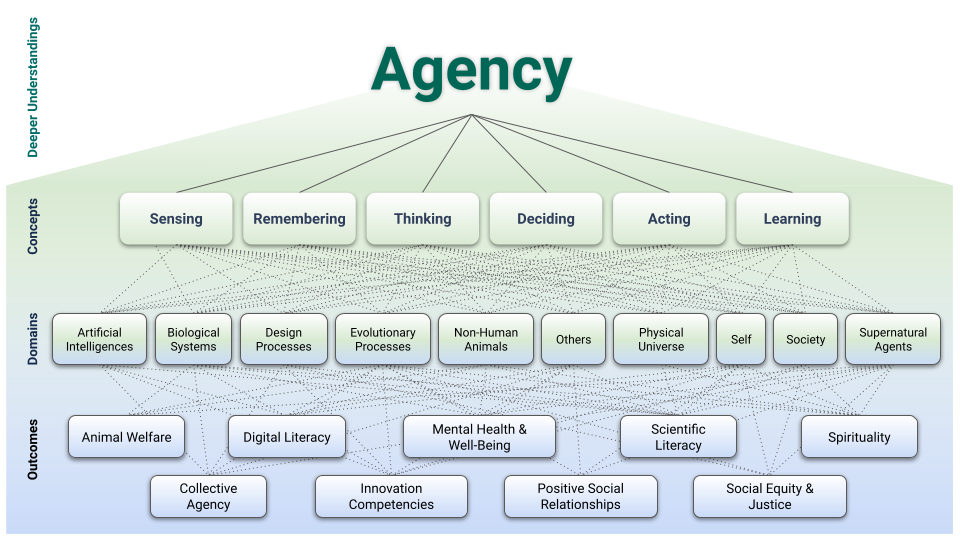Understanding
Agency
Tools for Thinking about the
Origins, Diversity, and Flexibility of
Goal-Directed Behaviors
From humans to ants, and computer algorithms to thermostats, the world is full of agents with diverse goals and behaviors, what scientists, arguably, call agency.
Our sense of agency, as individuals and communities, is part of the core of who we are, as humans. The origins of the diverse goals and purposes that humans pursue is a topic of both scientific and practical interest. Thus, how humans learn to understand the concept of agency is a central concern for all of us.
Our Understanding Agency project aims to curate resources for tackling this challenge from interdisciplinary perspectives, while providing guidance for students and researchers to advance cross-culturally informed and developmentally appropriate educational innovations. The tools and resources here will guide you through some of the basics of developing your own deeper understanding of agency, and the skills to transfer your learning to your own life and society as a whole.
How should educators and students engage the concept of agency?
Keynote: Understanding Humans, AIs, and the evolution of equitable societies
Watch OpenEvo co-founder, Dustin Eirdosh, deliver a keynote talk to members of the Max Planck Society on the role of understanding agency in humans, non-human organisms, and AIs, in education for sustainable development.
OpenEvo Project Resources
Understanding Agency – Lesson Collection
A lesson collection for learning about the origins, diversity, and flexibility of goal-directed behaviors.
MethodsBase for Understanding Agency
A collection of methods of exploring how humans understand the concept of agency.
What is agency?
In order to understand agency, we have to work to acquire and clarify what kinds of phenomena the concept of agency can be productively applied to. Scientists within and between disciplines often disagree widely as to an exact definition or scope for what should be described as an “agent” with “agency”.
Use the conceptual attainment activity below to try sorting diverse phenomena according to their relative amount of agency.
This is just an introductory conversation starter.
Understanding Agency – Conceptual Attainment
An introductory h5p interactive sorting task for starting a conversation on the diversity and complexity of understanding agency.
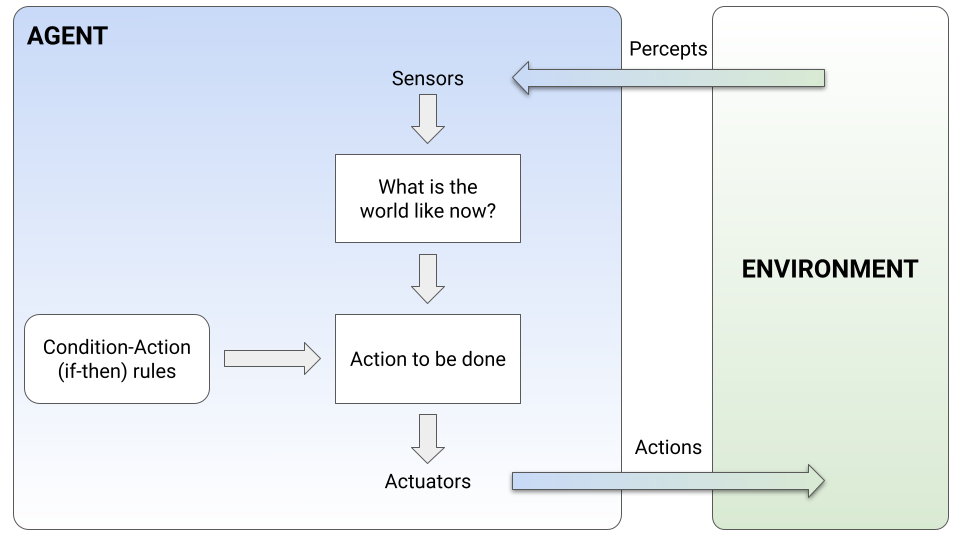
A minimal model of agency includes some kind of feedback loop in which the ‘understanding’ of the world within the agent is adapting the actions of the agent based on information from the environment. (image adapted from: Wikipedia: Intelligent Agent)
After you begin thinking about the conceptual boundaries of agency, try reading the article Cognition all the way down, by biologist Michael Levin and philosopher of cognition, Daniel Dennett. Their argument is significantly “controversial” (depending on who one asks), in that diverse scientific experts within and between diverse scientific fields or traditions hold a wide diversity of views on these claims. There is no clear “expert consensus” on the concept of agency (or cognition) which can serve as the target of learning among students in general education. Ask yourself:
Do you agree or disagree that cognition and agency goes “all the way down”? Why or why not?
What about cognition and agency beyond humans?
…beyond organisms with neurons? The genome itself? Other sub-cellular biological elements (agents?)?
What is your conceptual floor for the concepts of cognition and agency?
How does your understanding of agency relate to your understanding of evolution?
How do you think schools and students should engage these topics, if at all?
These are complex, open questions we are working to explore through a diverse portfolio of thinking tools and educational innovation research projects aiming to provide expert guidance in the context of appreciating cross-cultural diversity on these big questions.
How does our everyday thinking about agency influence our understanding of the world around us?
Sensing and reasoning about the diverse agents of our world is a skill in which humans have evolved particularly elaborated skills. Despite this foundational aspect of agential thinking, humans often struggle to understand important aspects of themselves, as individuals, communities, and societies.
We often either over- or under-attribute the degree or nature of agency that we ourselves and those around us may possess. These errors in reasoning can influence many important real world outcomes.
For these reasons, understanding agency requires us to develop an understanding of how humans reason about the diverse domains and real world outcomes in the box to the right. One resource for exploring these is our primer on the relationship between Goals, Behaviors, and Outcomes. Learn how humans tend to reason about these complex relationships, and how scientific tools can aid our thinking.
How humans reason about agency may influence real world outcomes
How humans come to understand and apply core concepts related to agency (e.g. sensing, remembering, thinking, deciding, acting, and learning) across the diverse domains of our world (e.g. from our self and others, to biological systems, non-human animals, and artificial intelligences), is likely to be a central driver of many real world outcomes (e.g. well-being, scientific literacy, etc.).
Note: this Structure of Knowledge Diagram represents highly general, hypothesized, descriptions of possible relations between concepts, domains, and outcomes, there is no normative or scientific claim as to what or how any individual or community should think about agency. Understanding the space of conceptual possibilities may allow school communities to better formulate learning trajectories relevant to local and global values.
How do scientists think about agency?
Scientists have long discussed and debated the concept of agency.
It is a concept that seems to invite really BIG (and sometimes controversial) questions, such as:
- What (or Who) counts as an agent? What counts as agency?
- How is agency similar and different among the diversity of agents in our world?
- How does agency relate to evolution and learning?
- What could agency look like beyond planet earth?
None of these questions have easy answers, or even any kind of “expert scientific consensus” (though, of course, some areas of some issues may have more consensus than others).
This makes for a somewhat unique challenge for science educators and students of science, around the world. For this reason, it is important for everyday people and experts across disciplines to develop resources for better thinking about the concept of agency. Below we offer some tools and further directions for research into Evolution Education and School Improvement.
Tools for scientific thinking
Understanding agency is not easy, but it is fascinating! Scientific tools can help us refine and extend our thinking beyond our everyday experiences, to help us all think more clearly about causes within the systems that matter to us.
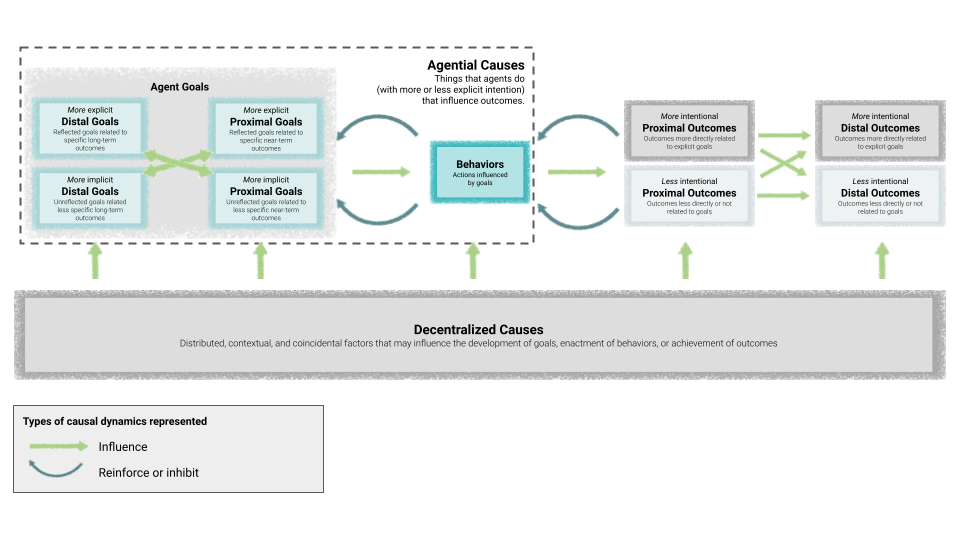
Goals, Behaviors, and Outcomes
How can we understand the causal relationships between goals, behaviors, and outcomes?
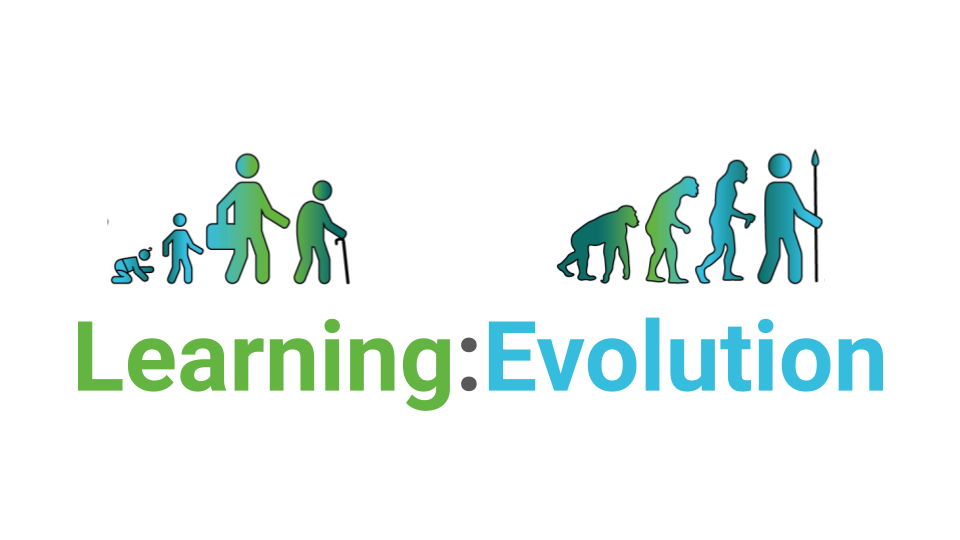
The Learning:Evolution Analogy
Learning and Evolution are processes that are both similar and different, in important respects. What can humans learn by comparing these processes?

The Decentralized Self
The human brain is the seat of human agency, and yet this agency is caused by cellular agents unaware of our larger human goals.
How should educators and students engage the concept of agency?
The big questions invited by the concept of understanding agency require new innovations and strategies in education. Below, we map out further questions and opportunities within our approach to Educational Innovation Research, our Educational Design Concept, and our Theory of School Improvement.
Evolution Education Research
How should evolution education engage the concept of agency?
Evolution education has traditionally sought to reduce or even eliminate “agential thinking” in terms of evolutionary explanations. Emerging perspectives in evolution science and in evolution education research point to new opportunities that may exist by instead focusing on the metacognitive development of agential thinking as it relates to evolutionary explanations.
Explore the resources to the right to better understand frequently asked questions and emerging research questions relevant to improving evolution education.
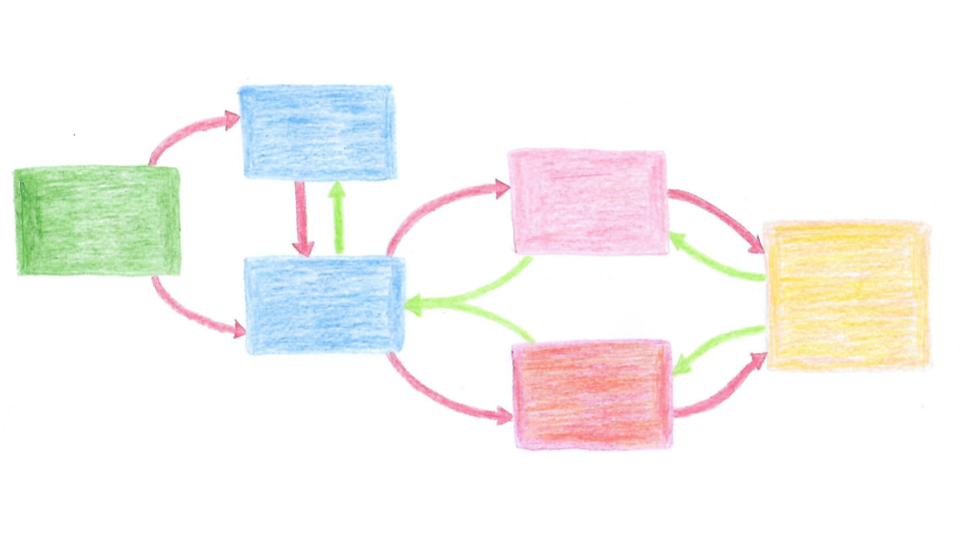
Agency in Evolution Education
A page for researchers interested in the concept of agency as it relates to learning theories of evolution, including natural selection in biological systems.
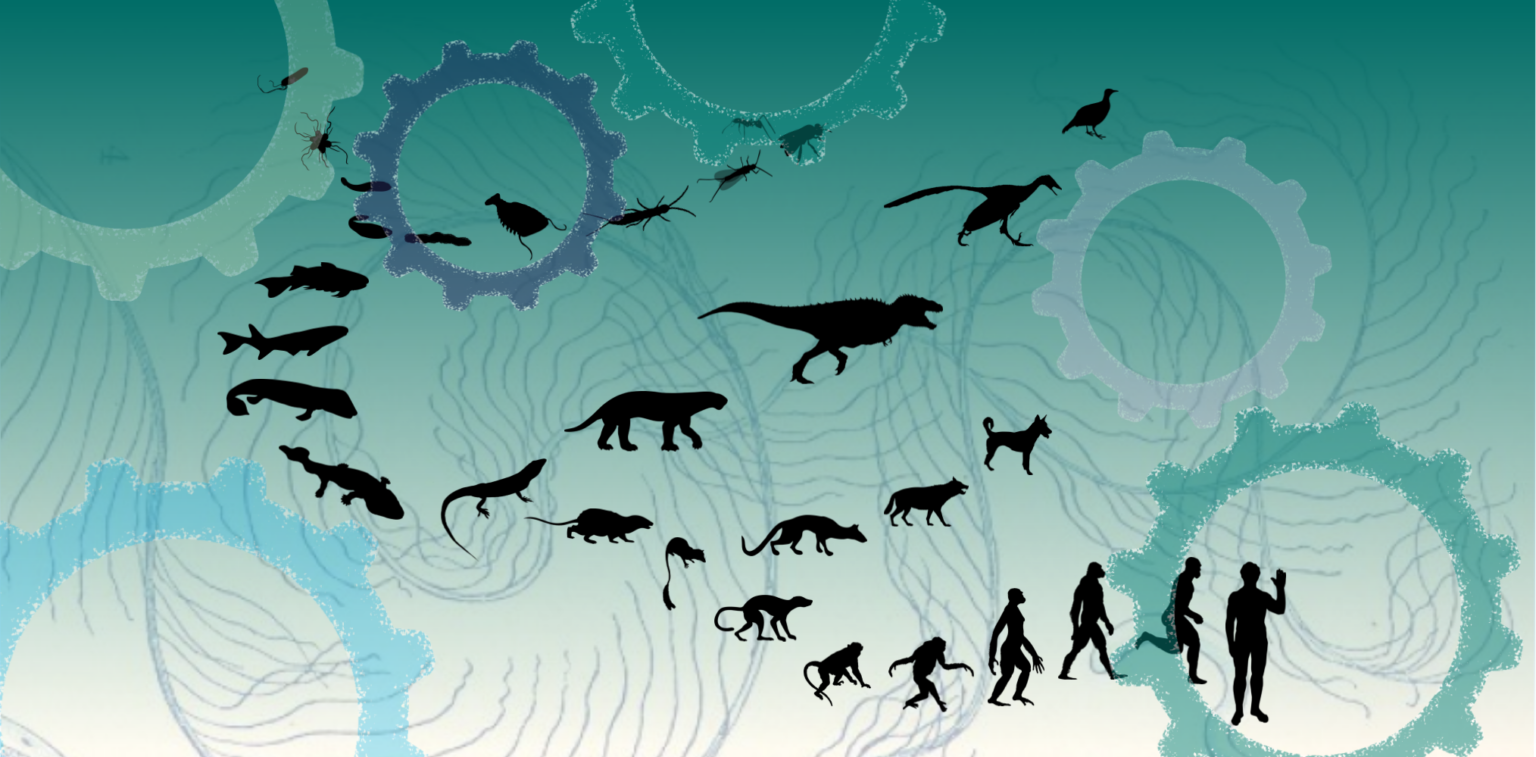
EvoFlex
A collaborative project space for developing open tools for research into the evolutionary reasoning of students, experts, and AIs.
Artificial Intelligences through the lens of Machine Behavior
How should AI education engage the concept of agency?
With the explosion of popularity in AI due to models like ChatGPT, educators need new tools and resources to adequately engage the opportunities, and navigate the challenges, presented by this technological evolution.
Part of Understanding Agency therefore also entails understanding the origins, behavior, and adaptation of the Machine Learning algorithms that underpin AI systems. We aim to outline some strategic directions in educational innovation research and design for classrooms around the world.

Machine Behavior & Agency
How should we think about the actions and functions of machines in society? How can a science of machine behavior help us understand and influence the evolving computational systems that increasingly influence the world at large?
School Improvement Research
How should school improvement efforts engage the concept of agency?
The OECD has developed the Learning Compass framework around the concept of Agency, as a foundational focus for school improvement efforts, globally. Explore the resource to the right to see how our interdisciplinary educational design concept and Theory of School Improvement relate to the OECD Learning Compass model.
The essential question of how a conceptual understanding of agency may relate to the development of human agencies in diverse individuals and communities, is one that students themselves deserve an opportunity to explore.
The Understanding Agency project was developed on the basis of this foundational perspective.
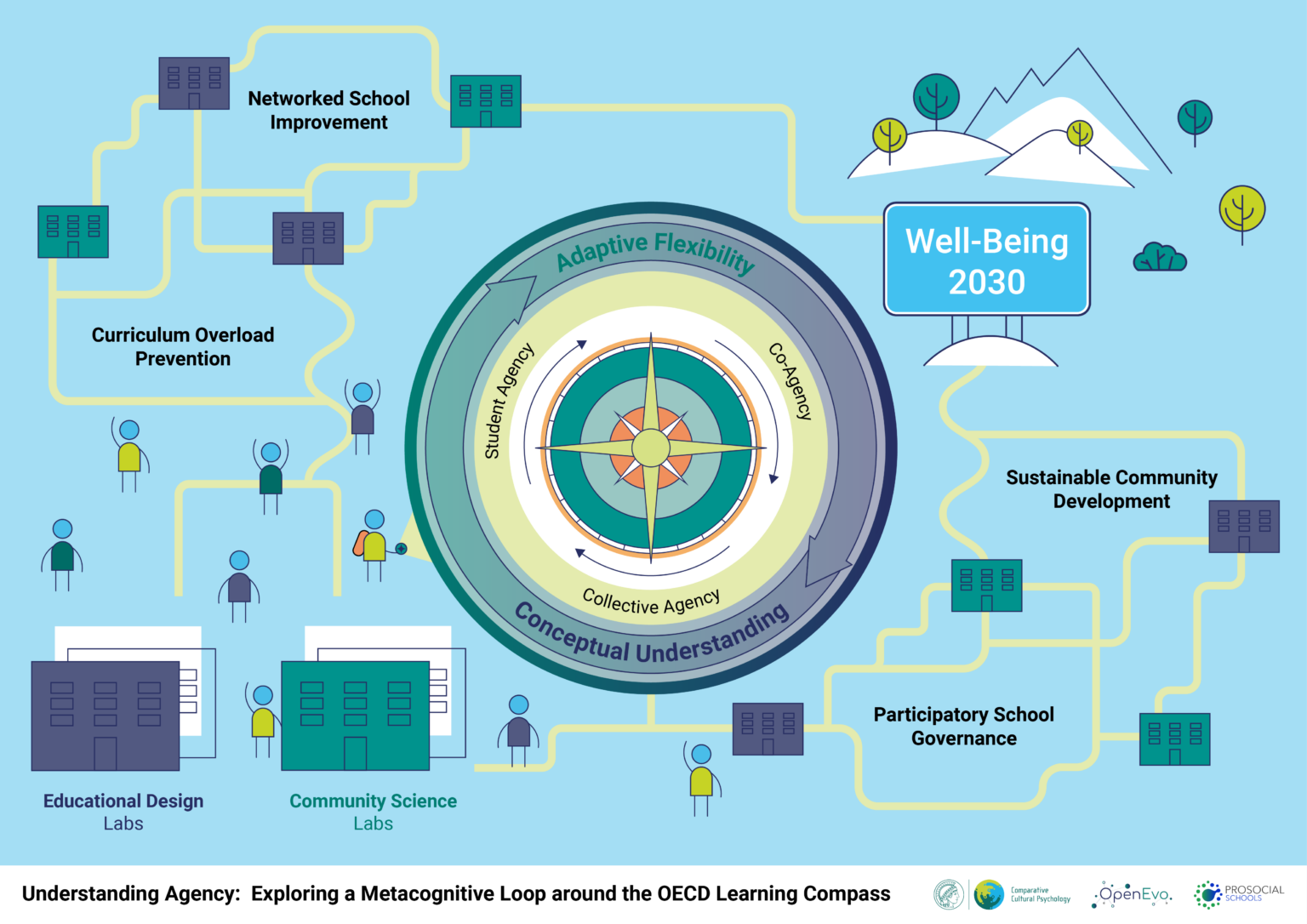
OECD Learning Compass
Understanding Agency Integrating Our Theory of School Improvement & the OECD Learning Compass What is the role of conceptual understanding in developing student agency? As
About the Understanding Agency collection
This evolving collection of concepts, tools, and resources is being developed to support diverse learners around the world in strengthening your own conceptual understanding of the intelligent agents that pervade our world. It is the result of a synthesis based on our OpenEvo Educational Design Concept, combined with scientific inspiration from the Diverse Intelligences Summer Institute.
We welcome collaborations with students, teachers, and researchers interested in advancing the educational potential of understanding agency. Contact us with questions.


